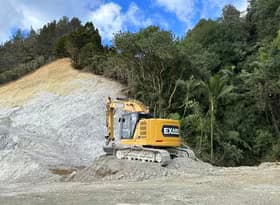Articles
Aggregates are important. But how important is clouded by a lack of quality data being collected. Based on current production figures and survey response rates, the actual amount of aggregates produced over the last 12 years might be 49% higher than reported. Read
Concrete roads are well suited for high intensity traffic and are more cost effective in the long run according to a new economic report. Read
Infrastructure investment remains a hot topic across the country, with increasing demands for investment, but more limited amounts of funding available. High cost escalation for network infrastructure in recent years have contributed to a need to spend more than anticipated to get less than anticipated. Read
Over the weekend we have updated the Infometrics Infrastructure Pipeline Profile (IPP) with the latest data for several infrastructure types. The Profile details expected infrastructure investment out to 2031. Read
Recent headlines about the state of New Zealand’s infrastructure have mostly been disillusioning. Whether it’s our inability to afford new interisland ferries, the apparent poor condition of our state highways, or calls for Lower Hutt residents to “stop pooing” ahead of the Jucy Fest music festival, it’s difficult to escape the impression that New Zealand is struggling to maintain its infrastructure somewhere even close to first-world standards. Read
Electricity distributors have published new forecasts of expenditure on capital and network maintenance. These forecasts have resulted in a 33% increase to overall electricity distribution investment over the forecast period compared to prior expectations, worth nearly $4b over the next eight years.... Read
Infometrics has recently conducted further analysis into planned spending on new electricity generation assets as part of our recent update to the Infometrics Infrastructure Pipeline Profile (IPP). Our analysis has identified some trends in the electricity generation sub-sector, including a shift to... Read
In the early days following Cyclone Gabrielle, there were whispers that we could be facing a repair and rebuilding mission on a similar scale to the one following the 2011 Christchurch earthquake. But six weeks after the cyclone, the recovery picture is becoming clearer. By the first half of March, there were just over 100 red-stickered properties across Hawke’s Bay and Gisborne, with more than 1,000 additional yellow-stickered properties. Read
New data from Stats NZ shows that the residential construction subindustry might be over the worst of its cost pressures. Residential construction costs rose by 2.0% in the December 2022 quarter and, although cost inflation is still highly elevated compared to the last three decades, this quarterly increase was the smallest since March 2021. Annual cost inflation for dwelling units has now eased from 16% to 13%pa since mid-2022. Read
Subscribers to our Building Forecasts will have noted substantial upward revisions by Stats NZ to its estimates of “other construction” activity (ie, excluding residential and non-residential construction – so mostly infrastructure) over the last 2-3 years. This article examines why Stats NZ’s “other construction” estimates can be subject to so much revision, and takes an in-depth look at what we know about this segment of the economy. Read









